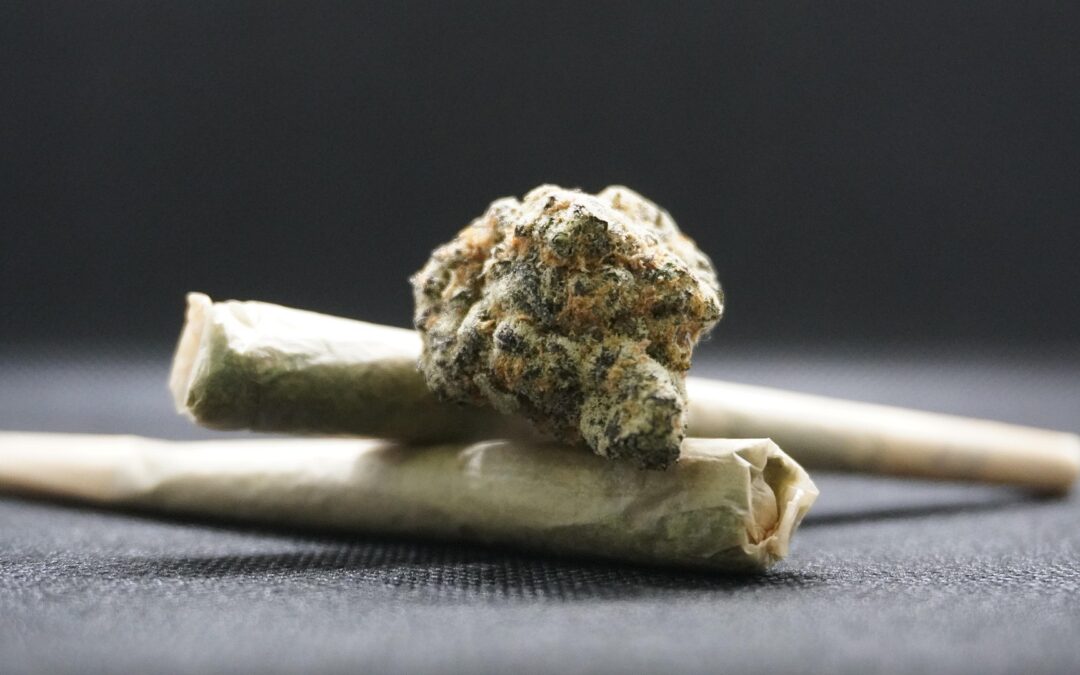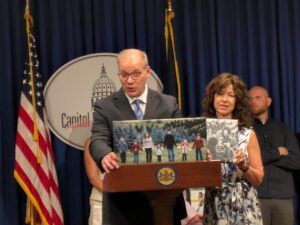In a recent opinion piece entitled “It’s time for a sensible approach to cannabis in Pennsylvania,” author Karen O’Keefe makes a number of arguments in favor of legalizing recreational marijuana in the Commonwealth. But her piece is filled with misleading claims, emotional appeals, and false assumptions that don’t stand up to scrutiny. Far from being “sensible,” the push for commercial cannabis legalization is reckless, harmful to families and public health, and driven more by industry profits than by concern for Pennsylvanians’ well-being. We owe it to our state—and especially to our youth—to think clearly, seek objective truth, and reject this dangerous policy shift.
Let’s take a closer look at some of the most common—but deeply flawed—arguments for retail legalization, and why Pennsylvania lawmakers should resist the pressure to follow a harmful and destructive trend.
Myth #1: Legalization promotes freedom, health, and safety
This sounds deceptively nice in theory, but the proponents have zero evidence to back it up. Legalizing high-potency recreational marijuana introduces serious health and safety risks, especially for teens and young adults. ER visits, traffic incidents, psychiatric hospitalizations, and cannabis-related psychosis have all spiked in states that legalized marijuana. There is no evidence that recreational use promotes health. On the contrary, a growing body of medical research shows links between regular cannabis use and depression, anxiety, cognitive impairment, psychosis, and increased risk of addiction.
Myth #2: Legalization Will Grow the Economy and Eliminate the Black Market
Advocates claim legalization will generate massive tax revenue, create jobs, and shut down the illegal market. But real-world results tell a different story.
States like California and Colorado have missed revenue projections and seen rising costs in health care, regulation, and law enforcement. Meanwhile, illegal sales continue, fueled by high taxes and overregulation that keep black-market prices lower than legal ones.
The promised “30,000 jobs” in Pennsylvania are unsupported and ignore job losses in industries hit by increased drug use, like transportation and manufacturing. Legalization may grow the marijuana industry, but it brings economic trade-offs, not clear gains.
Legalization hasn’t eliminated the black market—it’s added a legal one on top of it, with new costs and consequences for workers, families, and communities.
Myth #3: Marijuana is safer than alcohol
This is one of the most common, yet most misleading, talking points from proponents of retail legalization. Comparing two harmful substances doesn’t justify legalizing one of them. Alcohol abuse is a serious issue—one that we rightly work to reduce. Why would we introduce another harmful, addictive substance and normalize its use? Marijuana has its own set of dangers, including impaired brain development in youth, increased risk of schizophrenia, and dependence. If legislators’ concern is public health, expanding access to products that are known to impair judgment, motor skills, and mental health makes no sense.
Myth #4: Arrests for marijuana ruin lives
Proponents of legalization dishonestly present this as a universal outcome without nuance and disconnect from the truth. This claim fails to distinguish between misdemeanor and felony charges, first-time offenders versus repeat criminal behavior, or whether the arrests led to convictions. In many jurisdictions, including parts of Pennsylvania, simple possession is already decriminalized or rarely prosecuted. The blanket claim that cannabis arrests “ruin lives” ignores the fact that consequences often stem from broader behavioral patterns or concurrent illegal activity, not simply possessing a joint.
Myth #5: Marijuana laws are racially unjust
While this is a serious and sensitive issue, again, correlation is not causation. Disparities in arrest data require careful analysis, not ideological, lobbyist-driven conclusions. Many factors—such as policing in high-crime areas, socioeconomic conditions, or repeat offenses—contribute to arrest patterns. Reforming sentencing and policing practices should not require the full-scale legalization of a harmful high-potency THC. If racial disparity is truly the concern of legislators, then targeted criminal justice reform—not blanket legalization—is the responsible solution.
The arguments made by advocates of marijuana legalization often rely not on objective facts but on persuasive-sounding half-truths, popular slogans, and misleading false logic. To think rightly, discern wisely, and act justly, we must be alert to these errors in reasoning.
Here are just a few of the logical fallacies at the heart of the case for legalization:
Fallacy: Appeal to Popularity “A majority of Pennsylvanians agree…”
Public opinion does not determine moral or objective truth. Popular support doesn’t mean something is wise, just, or safe. At various points in history, public opinion supported slavery, segregation, smoking in hospitals, and banning interracial marriage. Our job as citizens isn’t to follow the crowd—it’s to make informed decisions based on objective truth and real evidence.
Fallacy: False Cause “Other states legalized and are prospering.”
Correlation isn’t causation. Just because Michigan collected revenue doesn’t prove it was solely due to cannabis legalization. Many other economic factors are at play. States with legalization also face increasing homelessness, youth drug use, and criminal activity linked to high-potency marijuana. All that aside, revenue isn’t the only or even the most important measure of success.
Fallacy: Strawman Argument “It’s unjust to criminalize a safer alternative to alcohol.”
No serious voice in this debate is calling for harsh penalties for low-level possession. But the alternative to commercial legalization isn’t over-criminalization—it’s sensible, thoughtful reform. We can address actual injustice without opening the floodgates to commercialized recreational marijuana and the harms it brings to Pennsylvania families.
Fallacy: False Dichotomy “We must either legalize or continue failed policy.”
This framing ignores many other options. But those pushing full-scale commercial legalization want you to believe the only choices are to arrest everyone or legalize everything. That’s a false and dangerous binary! Don’t be deceived.
Fallacy: Begging the Question “Prohibition is outdated.”
The article assumes the policies are wrong without proving it. Just calling something “outdated” doesn’t make it ineffective or unjust. In fact, many of our drug laws exist to protect public health and preserve societal order. The burden of proof lies on those who want to radically change longstanding policy, not on those who seek to uphold it. There is a reason these policies are in place, and those reasons remain valid.
Fallacy: Hasty Generalization “Marijuana arrests destroy lives.”
This is an emotionally charged statement, but it lacks evidence. It suggests that any contact with law enforcement leads to permanent harm, without considering other factors like substance abuse history, criminal background, or support systems. It paints with too broad a brush and uses isolated anecdotes to push a sweeping policy. The goal is to cause a deceptive, emotional response to get you to agree. Don’t fall for it.
Pennsylvania Should Say No to Retail Legalization
The marijuana industry wants us to see dollar signs and freedom. But behind the flashy numbers and false moral posturing lies a dangerous policy riddled with false assumptions, half-truths, and hidden unintended consequences. Legalization hasn’t lived up to its promises in other states. Pennsylvania shouldn’t follow them off a cliff.
Our lawmakers must reject the false promises of recreational marijuana legalization and instead promote public policies that truly protect our communities, value human dignity, strengthen the family, and advance long-term health and safety.
There are better ways to reform criminal justice and grow the economy—ways that don’t sacrifice the well-being of our youth, neighborhoods, and future.
Josue Sierra is the Director of Communications for the PA Family Council.
Related Content




